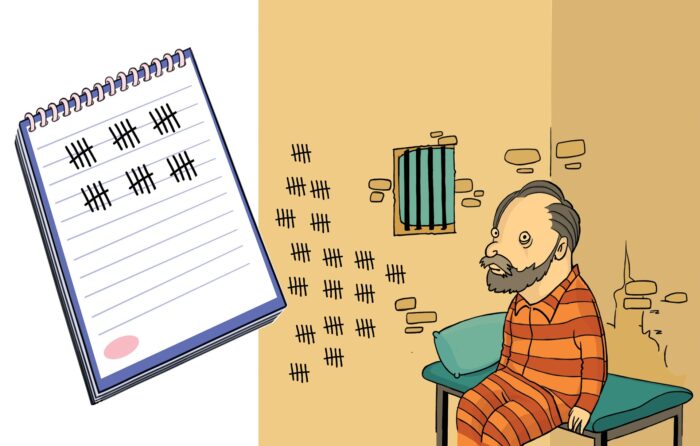40 Idioms About Crime and Criminal Justice
If you watch courtroom dramas or detective shows on television, you know that we use a ton of idioms to talk about crime and criminal justice.
We have idioms about crime, investigations, the police, courts, lawyers, and prisons. And sometimes we even use these idioms in everyday conversation to talk about non-criminal matters.
So it’s safe to say you’re going to come across these idioms, which means you should take the time to learn them.
Here are 40 criminal justice idioms you should know, along with examples of their use.
When you’re finished reading the article, try the practice exercise.
Interested in learning idioms? If so, check out the idioms and phrasal verb section of the site.
Idioms about committing crime
to cover one’s tracks
To cover one’s tracks means to conceal the evidence of a crime or other (usually shameful or nefarious) act.
“The thief covered his tracks well. He deactivated all the security cameras and didn’t leave a single fingerprint.”
“It would have been the perfect crime if only he’d been able to cover his tracks.”

to get caught red handed
To get caught red handed means to be caught in the act of committing a crime or breaking a rule.
“When I was 13, I got caught red handed spray painting graffiti on the local elementary school.”
“I caught one of my students red handed today. He had a cheat sheet with him during the test.”

to have a run-in with the law
To have a run-in with the law means to have trouble with the law.
“Looking at his life now you’d never guess that he had a run-in with the law when he was in his twenties.”
“It seems one of the candidates had a run-in with the law when he was younger.”

white-collar crime
White-collar crime is non-violent financial crime committed by high-ranking members of government or business.
“Many people find it unfair that white-collar crime isn’t punished more severely.”
“Our CEO was accused of a variety of white-collar crimes. He was eventually arrested on embezzlement charges.”

to keep one’s nose clean
To keep one’s nose clean means to stay out of trouble (often with the law).
“Jason’s on parole, so he absolutely has to keep his nose clean.”
“Kevin’s on academic probation. He has to study hard and keep his nose clean, or he risks getting expelled.”

to make off with something
To make off with something means to escape with something stolen.
“The thieves made off with over $50,000 dollars worth of jewelry.”
“In the movie, the protagonist makes off with several expensive paintings from a European museum.”
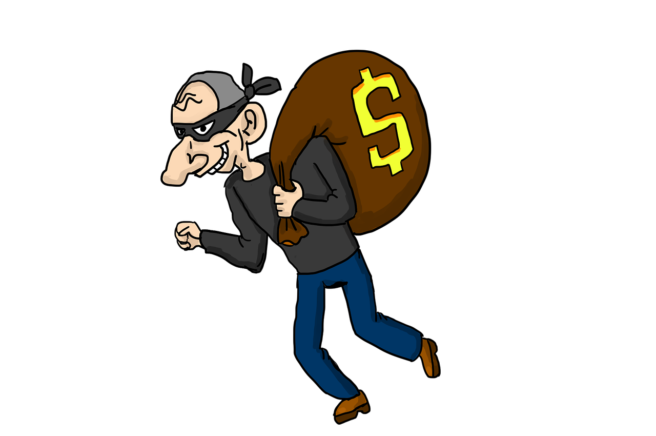
Idioms about police and investigations
cop
Cop is a common slang term for police officer. As cop can be used in a derogatory way, police officer, policeman, policewoman, deputy, officer of the law, patrolman, or patrolwoman are often better alternatives.
“Bryan says he joined the police force mostly because his dad and uncles are all cops.”
“The cops were on the scene five minutes after the 911 call was made.”
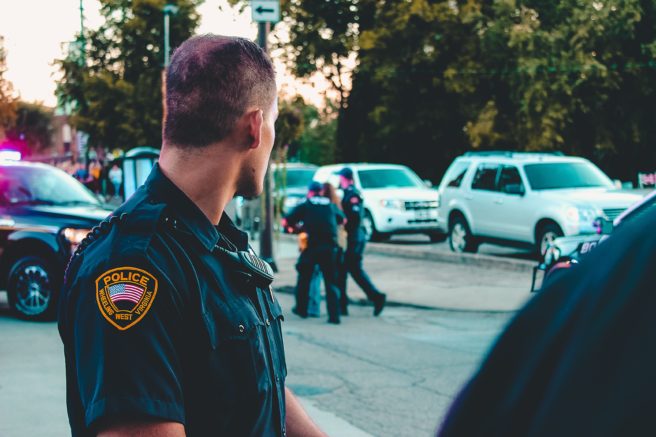
on the beat
On the beat means that a police officer is on duty.
“The police have put more cops on the beat in an effort to combat violent street crime.”
“No police officer should have to be on the beat for 16 hours straight.”

to do something by the book
To do something by the book means to strictly follow the established rules, laws, or procedures.
“Our detectives do everything by the book. They don’t break the rules to get convictions.”
“I try to do everything by the book at work. That way I know I’ll never get in trouble.”

the long arm of the law
The long arm of the law is used to communicate how powerful and far-reaching the criminal justice system is.
“No matter where he goes, the long arm of the law will find him.”
“They managed to avoid the long arm of the law for several years but were eventually caught in Mexico.”
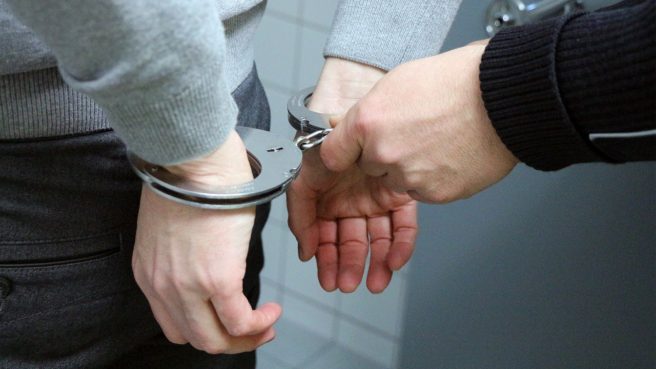
Idioms about confessing and informing
to come clean
To come clean means to reveal the truth about something that has been kept secret. We often use this expression to talk about legal confessions.
“If Brent comes clean about the robbery, he might get a reduced sentence.”
“Voters aren’t upset about the scandal; they’re upset about the candidate’s unwillingness to come clean about it.”

to fess up
To fess up means to confess to something.
“I know it was you who ate my sandwich. Fess up!”
“If you want to fix your marriage, you’re going to have to fess up to your infidelities and be honest with your wife.”

to turn oneself in
To turn oneself in means to surrender to authorities.
“After 13 months on the run, the suspect decided to turn himself in.”
“I think I’d rather turn myself in and serve my prison sentence. It’s better than running from the police for the rest of my life.”

to take the rap for (something)
To take the rap for something means to accept the blame or punishment for something. We often use this idiom to talk about someone who accepts blame or punishment for something that is not their fault.
“Do you think he’ll rat on his friends, or do you think he’ll take the rap for the robbery?”
“A good coach takes the rap for his team’s struggles.”

to snitch/to snitch on (someone)
To snitch means to inform on someone (usually to the police). The word has a negative connotation. We can also use snitch as a noun as a pejorative term for an informant.
“You’re wasting your time. I’m not going to snitch on my friends.” (used as a verb)
“My teacher found out that we had a copy of the test from last semester. I don’t know how she found out, but I think someone must have snitched.” (used as a verb)
“Gang members often go to great lengths to exact retribution on snitches.” (used as a noun)
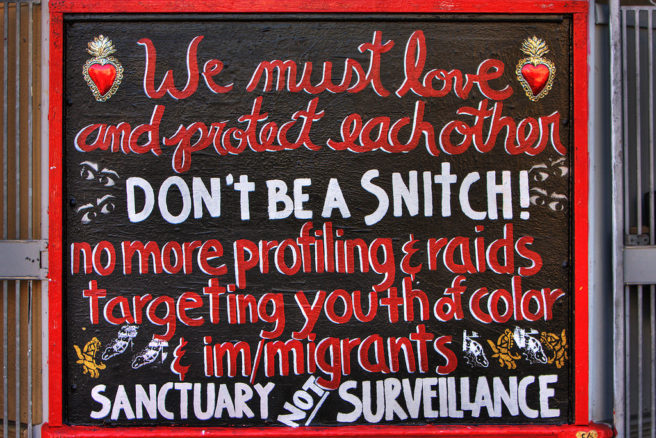
to rat on (someone)/to rat (someone) out
To rat on someone, or to rat someone out, means to inform on someone (often to the police).
“He was ratted out by another gang member and taken down by the FBI.”
“Maria ratted out her brother for throwing a party when her parents were out of town.”

to sing
To sing can mean to confess or to inform on someone.
“If we offer the suspect a severely-reduced sentence, he’ll start singing.”
“Many criminals say they’ll never snitch, but when they’re faced with a potential prison sentence, they start to sing.”

to squeal/to squeal on someone
To squeal means to inform on someone to the authorities, especially the police.
“There were several eyewitnesses, but they’re not talking. We’re confident that we’ll eventually get someone to squeal.”
“He needs protection in prison. He has squealed on several of the other inmates.”

to lawyer up
To lawyer up means to stop talking to the authorities and obtain legal representation.
“I wouldn’t answer the officers’ questions if I were you. Lawyer up and don’t say a word.”
“The cops tried to make the suspect feel comfortable so that he wouldn’t get scared and lawyer up.”

Idioms about prosecuting crime
to not have a leg to stand on
To not have a leg to stand on means to not have sufficient evidence to prove something. We can use this term in both a criminal and non-criminal context.
“All the evidence is circumstantial. I don’t think the prosecution has a leg to stand on.”
“If you’re trying to defend his presidency, I don’t think you have a leg to stand on. He was one of the worst leaders we’ve ever had in this country.”
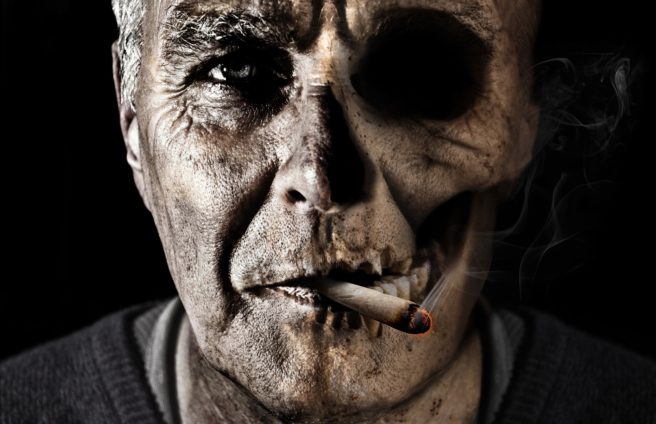
open and shut case
An open and shut case is a case in which the facts are clear and obvious.
“The jury only deliberated for 30 minutes before coming back with a guilty verdict. It was an open and shut case.”
“The suspect had a motive, and the murder weapon was found in his apartment. It’s an open and shut case.”

judge, jury, and executioner
Judge, jury, and executioner means that someone has the complete power to punish someone.
“Our legal system is designed to distribute power among many different authorities. It isn’t good to have one person as judge, jury, and executioner.”
“In that family, the mother acts as judge, jury, and executioner.”

the jury is out
The jury is out (or the jury’s out) means that the jury is deliberating and deciding on a verdict. We can also use this idiom in a non-legal context to talk about something that has yet to be decided on.
“The jury is still out. We don’t have a verdict in the case yet.”
“The jury is out on whether the lower interest rates will stimulate the economy.”

Idioms about consequences
to get off scot-free
To get off scot-free means to completely avoid a deserved punishment.
“It’s not fair that all these white-collar criminals get off scot-free just because they have a team of lawyers working for them.”
“Tom started the fight, but he got off scot-free because he’s one of the school’s top athletes.”

to get away with murder
To get away with murder means to do whatever one wants without being punished. We can use this term in both a criminal and non-criminal context.
“I understand that we need to protect out informants on the street, but we can’t let them get away with murder just because they help us out occasionally.”
“Students get away with murder when they have a substitute teacher.”

to beat the rap
To beat the rap is an informal way of saying that someone escaped punishment by being found not guilty of a crime.
“With his team of high-priced lawyers, he’ll most likely beat the rap.”
“There’s probably not enough evidence for a conviction. We think she’ll beat the rap.”

to get a slap on the wrist
To get a slap on the wrist means to receive a minor, insignificant punishment for something.
“Don’t worry, Mrs. Rogers. This is your son’s first offense. He’ll most likely just get a slap on the wrist.”
“I got caught cutting class. I was happy to just get a slap on the wrist from my teacher.”

to face the music
To face the music means to accept the responsibility and punishment for something.
“If you don’t face the music now, you’re just going to make it worse.”
“Karen fought with her mother and ran away from home. After two weeks, she decided to go back and face the music.”

to throw the book at someone
To throw the book at someone means to punish someone with the greatest severity possible.
“It’s Connie’s third drug offense. I don’t think the judge is going to show any mercy. He’s going to throw the book at her.”
“If you cheat on a test, they’ll throw the book at you. They’re pretty strict here.”
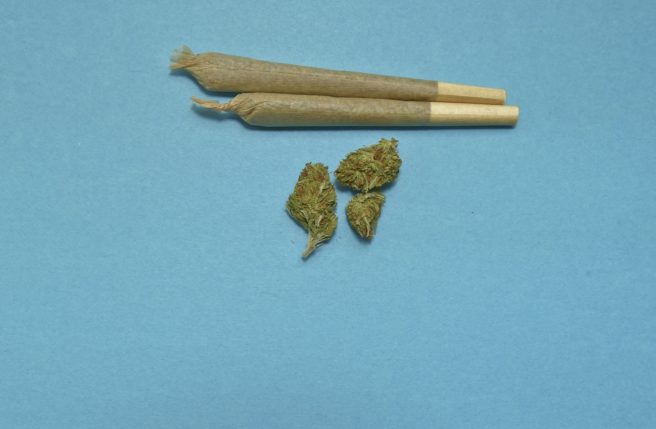
eye for an eye/a tooth for a tooth
An eye for an eye (or a tooth for a tooth) means that someone who injures another person should be punished in a similar way.
“I support the the death penalty. I believe in an eye for an eye.”
“An eye for an eye isn’t always the best solution. I think you have to consider the facts of each case.”

to crack down on (something)
To crack down on something means to take strong action in order to stop a particular behavior or activity.
“Police are trying to crack down on graffiti in the city.”
“The university has started to crack down on underage drinking.”
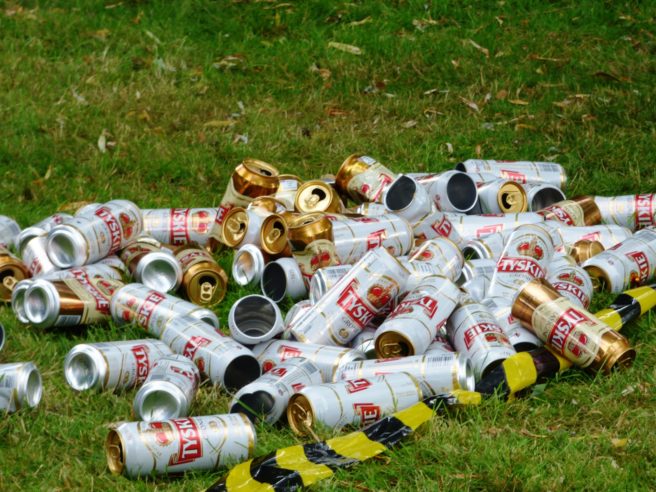
to take the law into one’s own hands
To take the law into one’s own hands means to punish someone (often violently) instead of allowing the criminal justice system to determine someone’s punishment.
“I know you want to take the law into your own hands, but you’re just going to have to trust the system.”
“Lack of faith in the police force caused residents to take the law into their own hands and form a vigilante group.”

to turn a blind eye to (something)
To turn a blind eye to something means to ignore something that is wrong, immoral, or illegal.
“Marijuana is still illegal here, but the police have been turning a blind eye to it for years.”
“Upper management has turned a blind eye to the company’s inhumane treatment of its factory workers.”

to be above the law
To be above the law means to be exempt from the laws that everyone else is subject to.
“Just because he’s the police chief doesn’t mean he’s above the law.”
“I think a lot of these politicians run for office so they can be above the law and get away with whatever they want.”
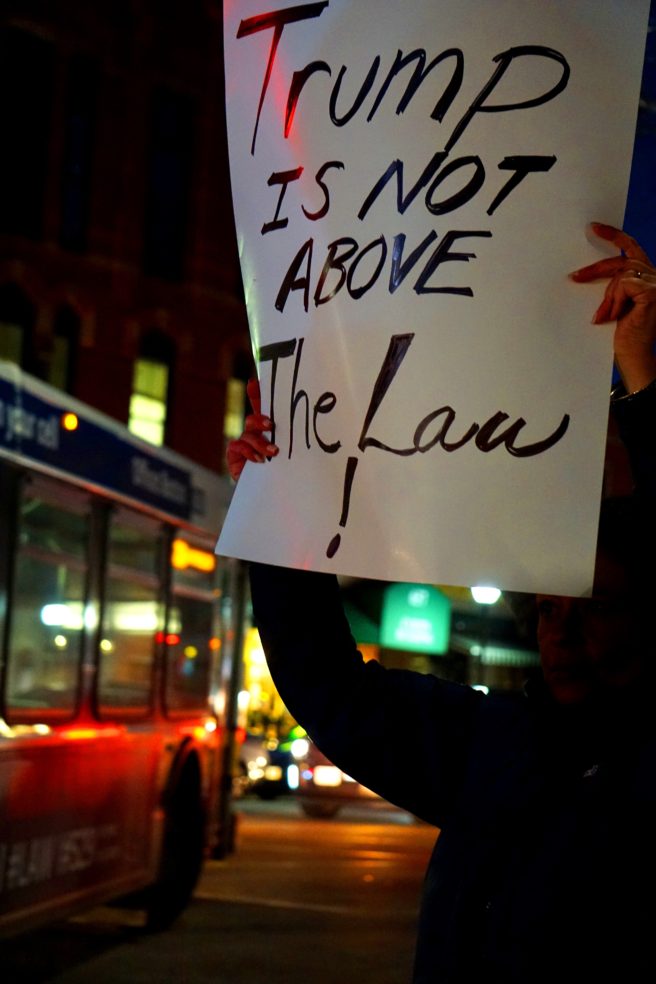
Idioms about prison
the slammer, the pen, the big house
These are all slang terms for prison.
“Mario was charged with grand theft auto and spent five years in the slammer.”
“Spending a year in the pen will change the way you see the world.”
“Aside from the one year in the big house, he’s managed to stay out of trouble with the law.”

to bail someone out
To bail someone out means to pay money as a guarantee that an arrested person will show up in court for trial. In a non-legal context, the term means to help or rescue someone that is having (often financial) problems.
“He’s wealthy. I’m sure his parents will pay the money and bail him out of jail.”
“Many people were angry that the government bailed out the banks in 2008.”

to do time
To do time means to serve time in prison.
“If you have done time, it can be difficult to find a job once you get out of prison.”
“Both her parents were doing time, so she was raised by her aunt.”
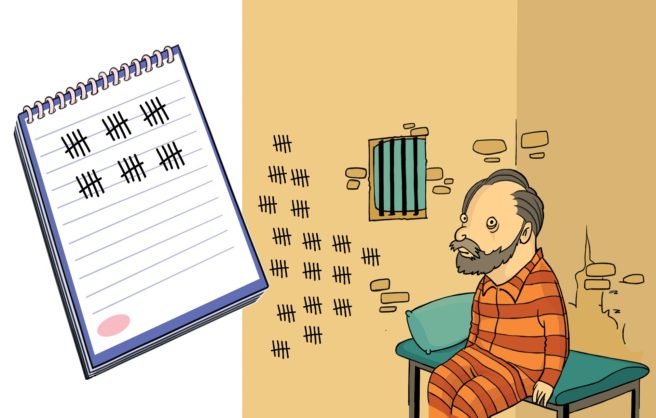
to be behind bars
To be behind bars means to be serving time in prison.
“I can’t imagine how difficult it must be to be behind bars for decades.”
“Some people would rather be behind bars than rat out their friends.”

Don’t forget to try the practice exercise.
For more idiomatic expressions, see these articles on idioms and phrasal verbs.

